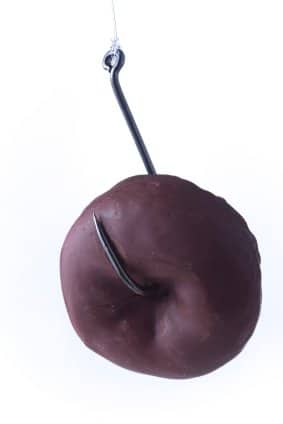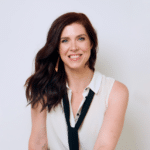Ah, the sweet yumminess of sugar. Say the word “cookie” and my amygdala (part of the “pleasure center” of the brain) lights up. Offer me a brownie – especially one from Tate’s Bake Shop in Southampton, NY – and my eyes get bigger than a drug addict scoring her first hit of the day.
Hi. My name is Lara Dalch, and I’m a sugar addict.
There are worse addictions, right? Cocaine. Meth. Alcohol. Pot. Much worse than sugar, you say? Yeah, I’m not so sure.
Sugar is more available than all of those drugs combined (depending on who you are, I suppose); and sugar addiction can lead to some pretty destructive things. Loss of energy. Being tired all the time. Inability to focus on and get done what you need (and want) to get done. Significant weight gain. Hypoglycemia. Diabetes. The list goes on.
Sugar soothes us in times of stress or confusion. It comforts us when we’re overwhelmed. It fills the emptiness when we feel lonely. It makes us feel whole. Think about it: How many times in the past week have you sat at your desk and thought “Oh my god, I NEED some chocolate!”? Or found yourself, late at night, reaching for another scoop of ice cream? Food is one of life’s great pleasures, no doubt; but it quickly turns into a drug if we’re not careful, especially with sugar.
Consider these hallmarks of addictive substances, both of which absolutely apply to sugar:
- Eating even small amounts creates an almost immediate desire for more.
- Quitting “cold turkey” creates withdrawal symptoms like headaches, mood swings, fatigue, and cravings.
I struggle with sugar cravings every day. Try these tips to start your own sugar addiction recovery program. They work for me!
- Deconstruct your craving. Annemarie Colbin, founder of the Natural Gourmet Institute, classifies cravings by one of three causes: addiction, emotions, or nutrient deficiency. This system helps me take a step back from my craving and figure out why I’m having it BEFORE I give into it. Once I decide which bucket it falls into, I can feed the craving appropriately. For example, a mid-afternoon cookie craving. Nutrient deficiency (that I might want to give into because my body is telling me something)? Unlikely. Emotional? Maybe…if I’m under a lot of stress. Addiction? Could be, depending on how much sugar I’ve had recently (see #1 above). Ruling out a nutrient deficiency narrows it down to an emotional or an addictive craving. If it’s emotional – I’m stressed out, tired, or sad – I might go for a quick walk or call a friend to talk. If it’s addiction, I might choose a gentler sweet, like a piece of fruit or a piece of whole grain bread with raw honey on it, to help wean myself off of refined sugar.
- Eat sweet vegetables and fruit. It sounds kind of crazy, but adding more sweet veggies and whole fruit to my diet really does reduce my cravings for refined sugar. I like sweet potatoes and corn. You can also try carrots, onions, beets, and winter squash. The idea is not to eat these things when you have a sugar craving but to incorporate them into your diet BEFORE you have the craving, as preventive medicine, so to speak. Try it. You might be surprised.
- Check your caffeine and water levels. Too much caffeine and not enough water are two other big culprits for me. If I don’t watch my coffee intake, I inevitably want an entire bag of cookies or a pint of Ben & Jerry’s come 8p. And, often, if I have a glass of water when I crave that sugary sweet, it diminishes my craving just enough that I forget about it. I was just dehydrated.
What’s worked for you in your quest to get off of sugar? How has eating less sugar positively affected your life? Share your experience in the comments.
P.S. If you’re ready to break free from sugar cravings (for good), check out my 10 Days to Sugar Freedom program. It’s easier than you think…no deprivation required. 🙂
xo,






